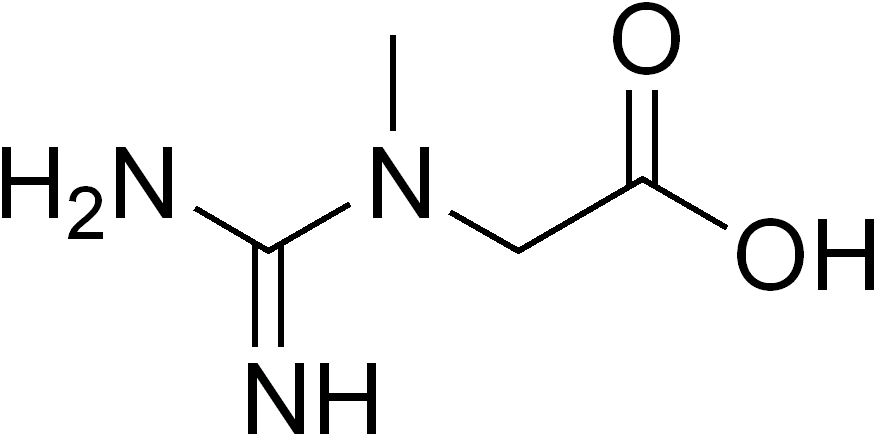X-Linked Creatine Deficiency

X-linked creatine deficiency is an inherited disorder that primarily affects the brain. People with this disorder have intellectual disability, which can range from mild to severe, and delayed speech development. Some affected individuals develop behavioral disorders such as attention-deficit/hyperactivity disorder (ADHD) or autistic behaviors that affect communication and social interaction. They may also experience seizures. Children with X-linked creatine deficiency may experience slow growth and exhibit delayed development of motor skills such as sitting and walking. Affected individuals tend to tire easily.
A small number of people with X-linked creatine deficiency have additional signs and symptoms including abnormal heart rhythms, an unusually small head (microcephaly), or distinctive facial features such as a broad forehead and a flat or sunken appearance of the middle of the face (midface hypoplasia).
Frequency
The prevalence of X-linked creatine deficiency is unknown. More than 150 affected individuals have been identified. The disorder has been estimated to account for between 1 and 2 percent of males with intellectual disability.
Causes
Mutations in the SLC6A8 gene cause X-linked creatine deficiency. The SLC6A8 gene provides instructions for making a protein that transports the compound creatine into cells. Creatine is needed for the body to store and use energy properly.
SLC6A8 gene mutations impair the ability of the transporter protein to bring creatine into cells, resulting in a creatine shortage (deficiency). The effects of creatine deficiency are most severe in organs and tissues that require large amounts of energy, especially the brain.
Learn more about the gene associated with X-linked creatine deficiency
Inheritance Pattern
This condition is inherited in an X-linked pattern. The gene associated with this condition is located on the X chromosome, which is one of the two sex chromosomes. In females (who have two X chromosomes), a mutation in one of the two copies of the gene in each cell may or may not cause the disorder. In males (who have only one X chromosome), a mutation in the only copy of the gene in each cell causes the disorder. A characteristic of X-linked inheritance is that fathers cannot pass X-linked traits to their sons.
In most cases of X-linked inheritance, males experience more severe symptoms of the disorder than females. About half of females with one mutated copy of the SLC6A8 gene in each cell have intellectual disability, learning difficulties, or behavioral problems. Other females with one mutated copy of the SLC6A8 gene in each cell have no noticeable neurological problems.